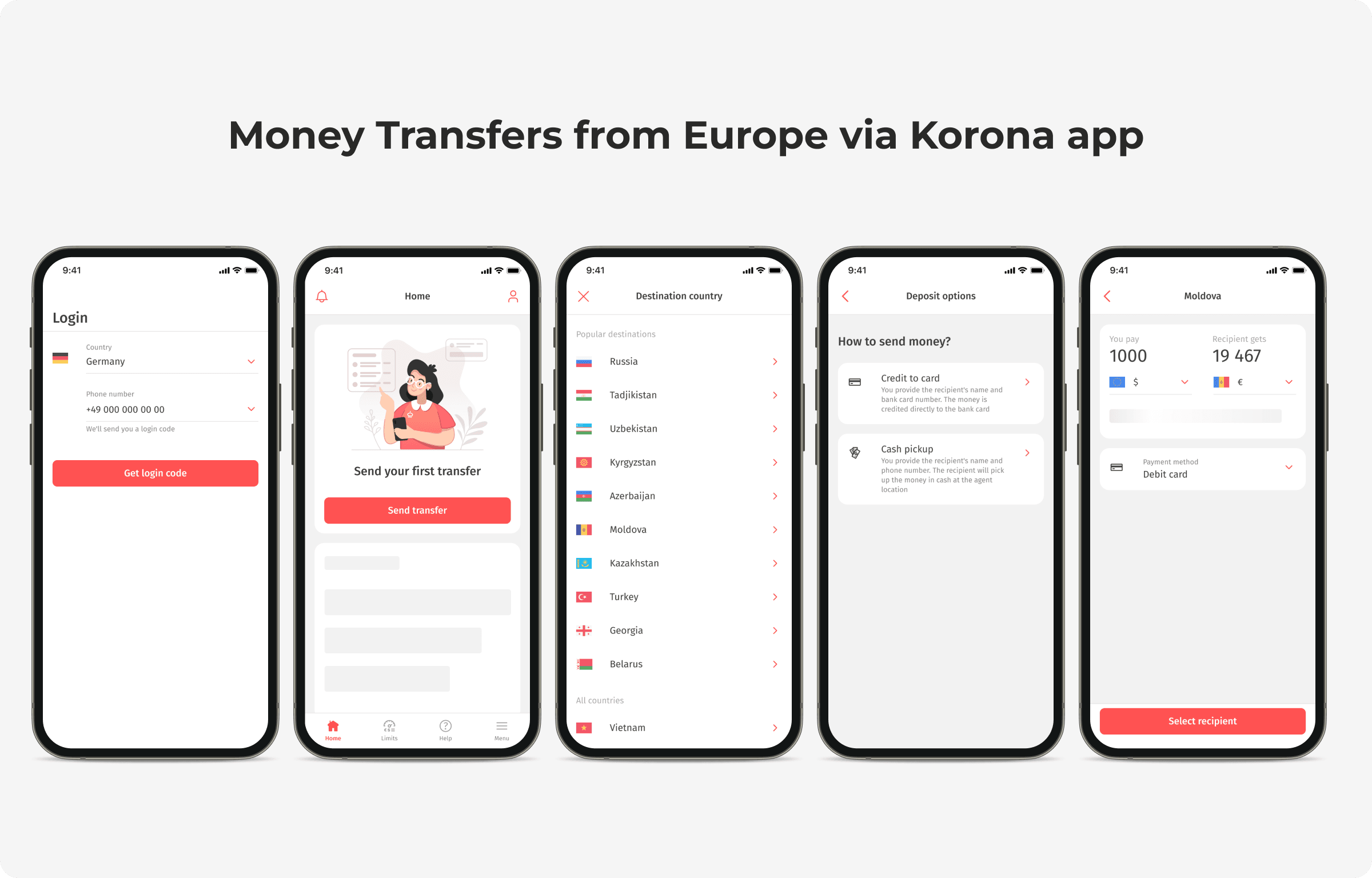Top 7 Cities in Germany for Migrants
In February 2024, Mercer consulting company published a ranking of global cities by quality of life, with three German cities making it into the top ten: Munich (6), Frankfurt am Main (7), and Düsseldorf (10).
The study evaluated living conditions in over 450 cities worldwide to help companies calculate fair allowances for expatriates, among other things.
By assessing living conditions based on 39 factors, Mercer experts noted that almost all major cities in Germany meet the requirements of a modern multicultural space and are ready to welcome foreigners, finding suitable applications for their knowledge and experience.
In this article, we decided to understand what exactly allowed these and other German cities to perform well in the overall ranking and the TOP specifically, and what they can offer to migrants who are planning to move there.
Previously, we wrote how to obtain a visa for family reunification in Germany.

Top 10 Cities in Germany
The statistics aggregator portal Statista has put forward its top German cities in terms of attractiveness for work. The main evaluation factors were the overall corporate culture, average salary, and the number of highly rated companies. The top cities in Germany for living according to Statista are:
However, these are the best cities in Germany according to Germans, where the majority of respondents might not necessarily be newcomers. To obtain data closer to reality, let’s refer to another source.
The expatriate network InterNations surveyed participants: 20,000 people gave their opinions, voting for 7 German cities out of 87 worldwide. The ranking compiled by expats looks like this:
1. Aachen
2. Düsseldorf
3. Hamburg
4. Frankfurt am Main
5. Cologne
6. Munich
7. Berlin
Comparative Table of Living Conditions in Popular German Cities for Foreigners
| City | Average Annual Salary (Gross, €) | Average Rent (€ /m²) | Average Cost of Living for One Person (Excluding Rent, €) |
|---|---|---|---|
| Aachen | 42,172 | 11.47 | 861 |
| Munich | 56,132 | 27.69 | 1,017 |
| Düsseldorf | 53,301 | 11.70 | 853 |
| Frankfurt | 55,751 | 16.47 | 1,200 |
| Cologne | 49,665 | 13.64 | 934 |
| Berlin | 46,928 | 17.23 | 997 |
| Hamburg | 49,809 | 17.29 | 961 |
To help you decide which German city is best to live in, let us tell you a bit about the most frequently mentioned ones.
Aachen
A beautiful place on the western edge of Germany, known for its architecture and historic center. 89% of surveyed expatriates from InterNations are satisfied with life here. In the “Work in the City” category, which assesses job opportunities, career development, and work-life balance, Aachen ranks 1st in the world and is considered the best city for work in Germany.
Popular industries in Aachen among interns include office management, retail, automotive manufacturing (currently producing StreetScooter electric vehicles), IT, and healthcare.
It also houses one of the country’s leading technical universities, thanks to which almost half of the population is students.
Working in Munich
The third-largest city in the country is a center of history and culture in the Bavarian region. Munich is also considered Germany’s economic center, hosting many multinational companies.
The most popular sectors for employment are IT, finance, and automotive, with an average annual salary of just under €57,000.
According to the Expat Essentials Index, 67% of expats are satisfied with life in Munich. However, there are challenges: the city has high public transport costs and a relatively underdeveloped restaurant scene.
Düsseldorf
The city is an important business and financial center, especially in fashion, advertising, and telecommunications. It is located in one of Europe’s largest economic regions, offering a balance for professionals seeking new opportunities in a relaxed atmosphere.
Leading employers here are companies in engineering, banking, and construction.
Additionally, Düsseldorf is one of the most beautiful cities in Germany. For a large European city, it has a relatively low crime rate, a modern transport network, and a generally low cost of living.
It is a multicultural city, which is particularly reflected in its cuisine: besides regular restaurants, there are many establishments with ethnic menus.
A downside is that expats sometimes find it difficult to build a diverse community. “It’s hard to make new friends when everyone has their own social circle since childhood, ” comments an InterNations survey participant.
Working in Frankfurt am Main
This is Germany’s financial capital, home to the European Central Bank and many similar institutions.
The financial sector is at the forefront of the job market, but there are also vacancies in media and advertising.
The average annual salary in Frankfurt is slightly lower than in other well-known German cities, but social life is vibrant and diverse, with excellent restaurants and entertainment venues.
69% of expats are satisfied with their lives here and note improved career prospects after moving. However, they face challenges, primarily in communication:
- Difficulty making friends
- The population is considered unfriendly
- Digital infrastructure and city administration are more likely to create difficulties for foreigners than solve them
Cologne
One of the best cities in Germany for tourists, thus there is high demand for qualified workers in the hospitality sector. Most large companies with offices in Cologne require employees who speak English.
Cologne is also known as Germany’s television capital. There are many advertising, radio, and television studios, as well as publishing houses, creating a high demand for talented media professionals.
Working in Berlin
The capital of Germany is popular among creative people, individual entrepreneurs, and innovators. Berlin attracts young professionals from all over the world and is considered a place where you can find a job in an interesting and promising company. This large German city is also full of innovations, which attract active people.
Incidentally, digital nomads coming to Germany are only allowed to live in Berlin.
The cost of living here is lower than in other European capitals, probably because it is located in the eastern part of the country, where the standard of living is slightly lower than in the west.
Berlin is a truly cosmopolitan city: many people speak English well, and there are job opportunities which do not require knowledge of German.
Major employers are represented in the following industries:
- Medical technology
- Pharmaceuticals
- Logistics
- Mechanical engineering
- Chemical industry
On the other hand, the German capital ranks low in the Expat Essentials Index and is a place where foreigners face significant obstacles. For example, there are issues with fast internet, not all places accept cashless payments, and administrative management is unsatisfactory.
78% of respondents find it difficult to rent housing here, and 39% struggle to establish a social life. At the same time, 83% consider the current economic situation to be good.
Working in Hamburg
Best known for its bustling port and developed maritime industry, the city offers a wide range of jobs in logistics, trade, and shipping. Hamburg’s economy is diverse and even includes the aerospace industry.
It is the wealthiest city in Germany with the highest GDP and employment rate.
It is considered an attractive place to work, with developed transport infrastructure and high urban environmental quality.
On the other hand, the Expat City Ranking 2023 calls Hamburg “the city with the unhappiest expats” in Germany. 41% of respondents are dissatisfied with their social life. 61% complain about difficulties making friends in the community and navigating bureaucracy. Living in Hamburg is especially challenging for expats who do not speak German.
Which Cities Are the Best in Germany?
Returning to the Mercer’s survey results that we began our review with, German top cities scored points primarily for safety, political stability, culture, and relatively low cost of living compared to, for example, US cities.
Yvonne Traber, Global Mobility Lead at Mercer, comments on the result: “Those [countries] that can offer stability, safety, and quality of life have the opportunity to attract talent from all over the world.”
Money Transfers from Germany
Working in Germany as an expat is a way to improve not only your personal quality of life but also to support relatives who stayed abroad. To send money transfers, you need a reliable service, and the Korona app is a solution suitable for almost everyone.

With Korona, it is easy to send money quickly and securely to 50 countries with minimal exchange rate markup, and minimal fees with currency conversion.
The app is available on the App Store and Google Play.
We write a lot about working in EU countries in our blog. If you are interested in this topic, read more in the article catalog.
